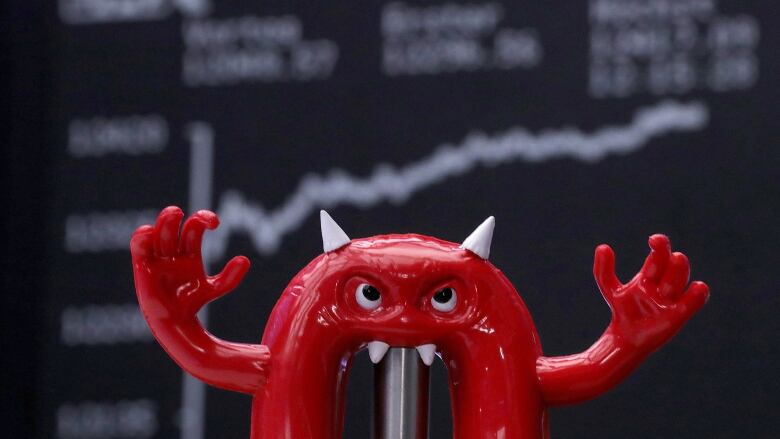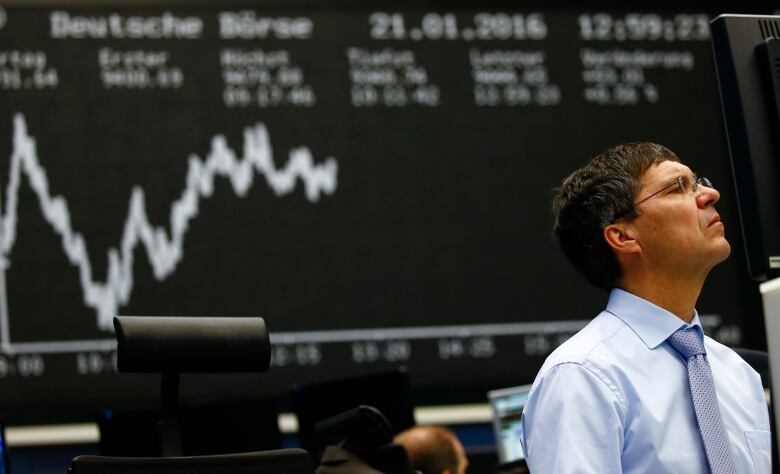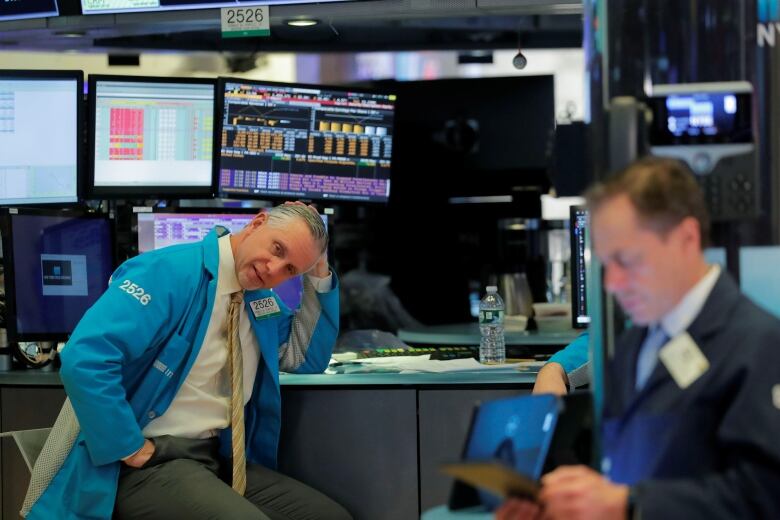Amid coronavirus rout, is it time to shut down the stock market?
Unprecedented volatility has raised calls for shutdown, but that poses problems, too

The unprecedented stock market sell-off underway has many Canadians wondering if the time hasn't come to shut down stock markets entirely for a while, in order to give everyone a breather while the world economy deals with the coronavirus.
Canada's benchmark stock index has lost more than a third of its value in less than three weeks, as investors respond to bleak new coronavirus headlines by selling shares in just about everything. Two of the worst days in the history of the TSX have happened in the past week alone, a pace and depth of selling that eclipses even what was seen during the financial crisis.
Four times since the start of the sell-off, automatic circuit breakers have kicked in to shut down the markets temporarily amid heavy selling pressure of more than sevenper cent at a time.
Those short shutdowns have some people thinking it may be time for a longer, more coordinated one.
"Things are changing faster than investors can process the impacts and outcomes, and all we're getting is bad news," investor Jeff Jongsmasaid in an email to CBC News on Wednesday. "Perhaps there is value in doing nothing for a few days, to examine the impacts and outcomes?"
Criticism of 'big money managers'
Andy de Beer, a retiree in Saskatoon, has watched as his savings have been wiped out in the current sell-off, and he estimates he's now back to where he was in 2014. He's in favour of a shutdown mainly because he thinks hugeinstitutional traders are making things worse and can find ways of profiting at the expense of smaller investors like him.

"Big money managers, the computer-driven sellers and buyers, and the hedge fund operators are driving this for their profit," he said. Citing techniques such as short selling and high-frequency trading that allows them to profit on spreads between buy and sell orders, de Beer said these larger investors "make money every time [that] the rest of us can only hope for."
"Everybody hates and shames the toilet paper and hand sanitizer profiteers, but nobody is talking about this!"
It's not just retail investors who think it may be time to take a break from it all. Citigroup analyst William O'Donnell wrote in a note to clients this week that it may be time to consider a move that not too long ago he himself would have considered drastic.
"This is a World War against the virus, so maybe it's not such a crazy idea," he wrote in a note to clients on Monday. "One might not be faulted to assume that a next major step might be to shut the stock markets to prevent a further, self-fueling sell-off."
History of shutdowns
If it is a war that we're in, then such a shutdown wouldn't be completely unprecedented. The Toronto Stock Exchange was shut down for several months in the First World Warand the exchange shut itself down for two days following the attacks of Sept. 11, 2001. The TSX has also had numerous short shutdowns over the years, including mysterious trading glitches last year and last month, in addition to the recent flurry of circuit breakers.

The New York Stock Exchange was shut down all those times and more most recentlyfor two days following Hurricane Sandy in 2012. The NYSE was also put on ice after the JFK assassination and when U.S. president Franklin Rooseveltmandated a shutdown of the entire banking system for a month during the Great Depression.
But for now, the people who run the exchanges don't sound like they are leaning toward a similar extended move.
John McKenzie, interim CEO of the TMX Group, which owns and operates the TSX, called the current sell-off "an exceptional and evolving situation," but addedthat there are no current plans to pull the plug.
"At this point, TMX feels strongly that it is in the best interest of all of our stakeholders, includingissuers, investorsand market participantsthatthe markets remain open," he said in a statement emailed to CBC News.
Shutdown could 'compound' anxiety
The person in charge of the New York Stock Exchange is even more adamant. NYSE President Stacey Cunningham said in a message on social mediathis week it's important for stock markets to stay open "and for them to function in a fair and orderly manner, as they have been."
"While we are deeply conscious of, and sympathetic to, investors' concerns around price declines, the market is a reflection of the larger uncertainties that everyone is experiencing during these challenging days. Closing the markets would not change the underlying causes of the market decline, would remove transparency into investor sentimentand reduce investors' access to their money," she said. "This would only further compound the current market anxiety."
It falls well short of a total shutdown, but the NYSE said late Wednesday that it will temporarily close its iconic trading floor in lower Manhattan and move to all-electronic trading beginning Monday as a precautionary step amid the coronavirus outbreak.
Despite the sea of red on stock markets right now, Cunningham isn't the only one who thinks the stock market being open is doing some good right now.
Frances Donald, global chief economist withManulife Investment Management in Toronto, saidthe solution to the market panic isn't less action on the stock market it's more.
"We are in the midstof one of the largest confidenceshocks that we've seen in the modern economy," she said in a phone interview. "People are scared for not just their physical health but also their financial health, [so] we need to give them access to their money."
While Donaldsympathizes with retail investors waylaid by seeing several years' worth of gains wiped out on paper, she noted that the way through all the fear and uncertaintyis to keep markets as transparent as possible.
"When you want to sell, someone has to buy. If we don't have enough participants in the market, then you see this dysfunction," she said. "If we shut down the market, we are doing the opposite of what this market needs most."
With files from Reuters and Associated Press













_(720p).jpg)


 OFFICIAL HD MUSIC VIDEO.jpg)
.jpg)



























































































